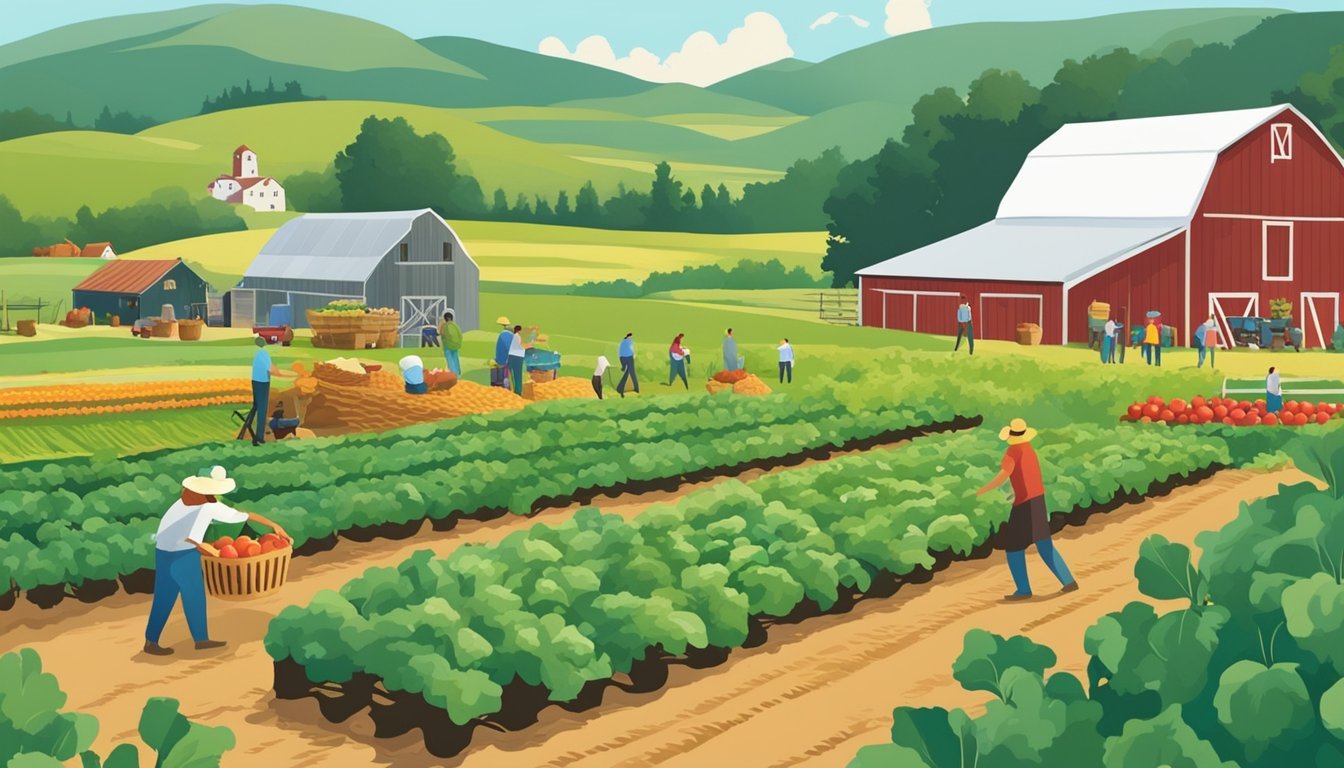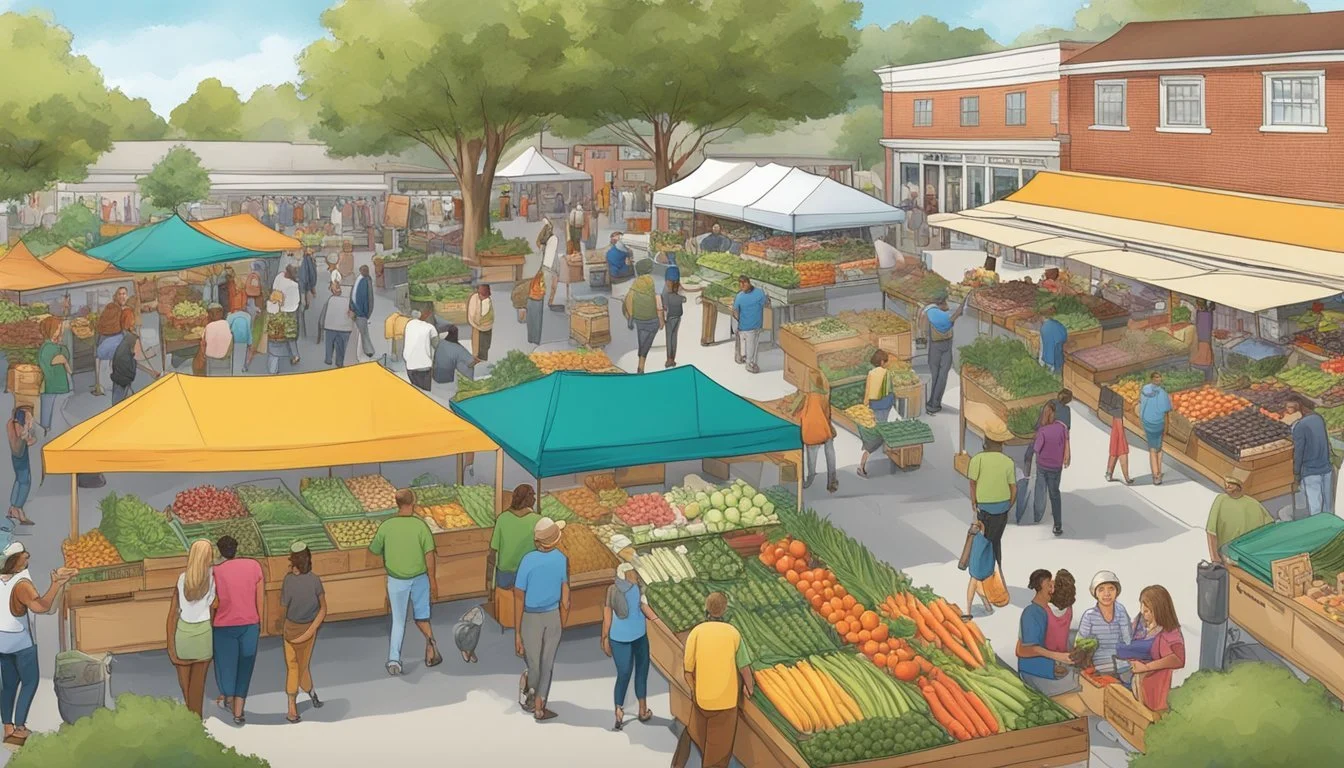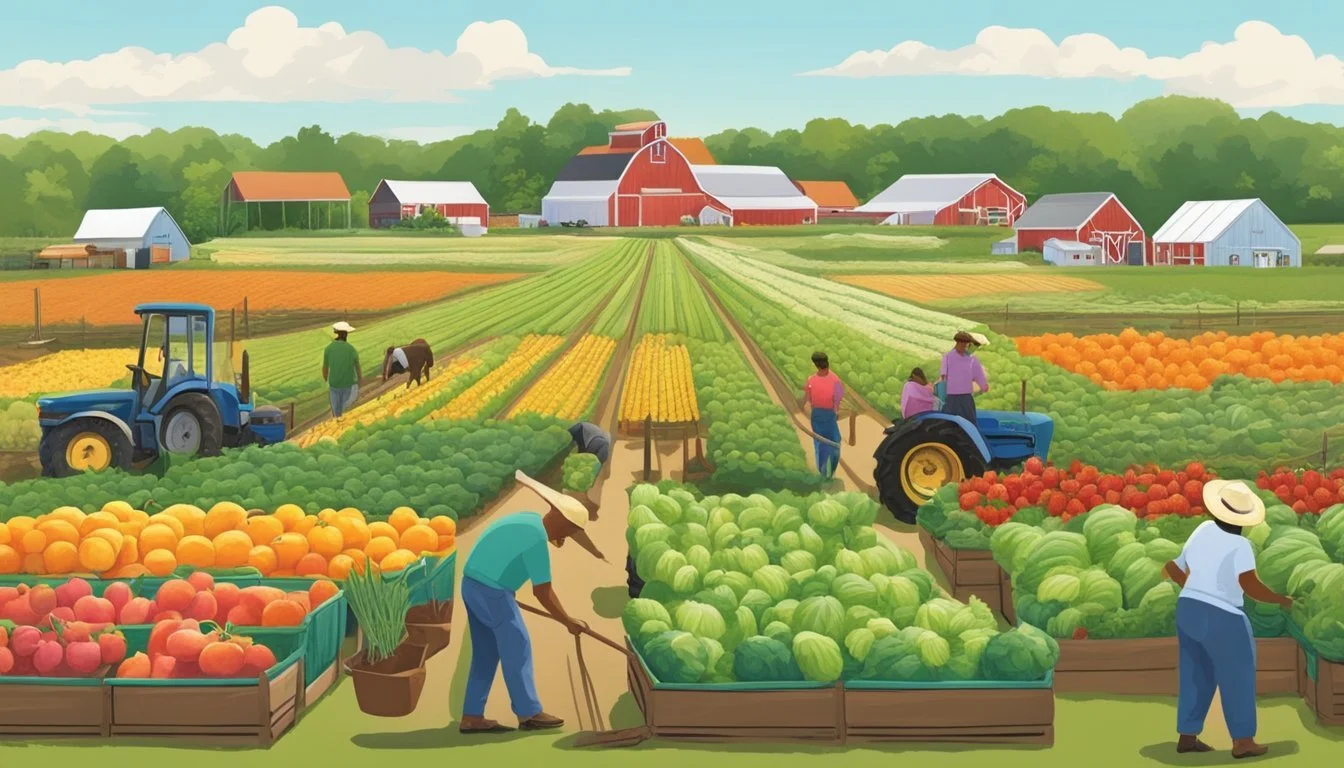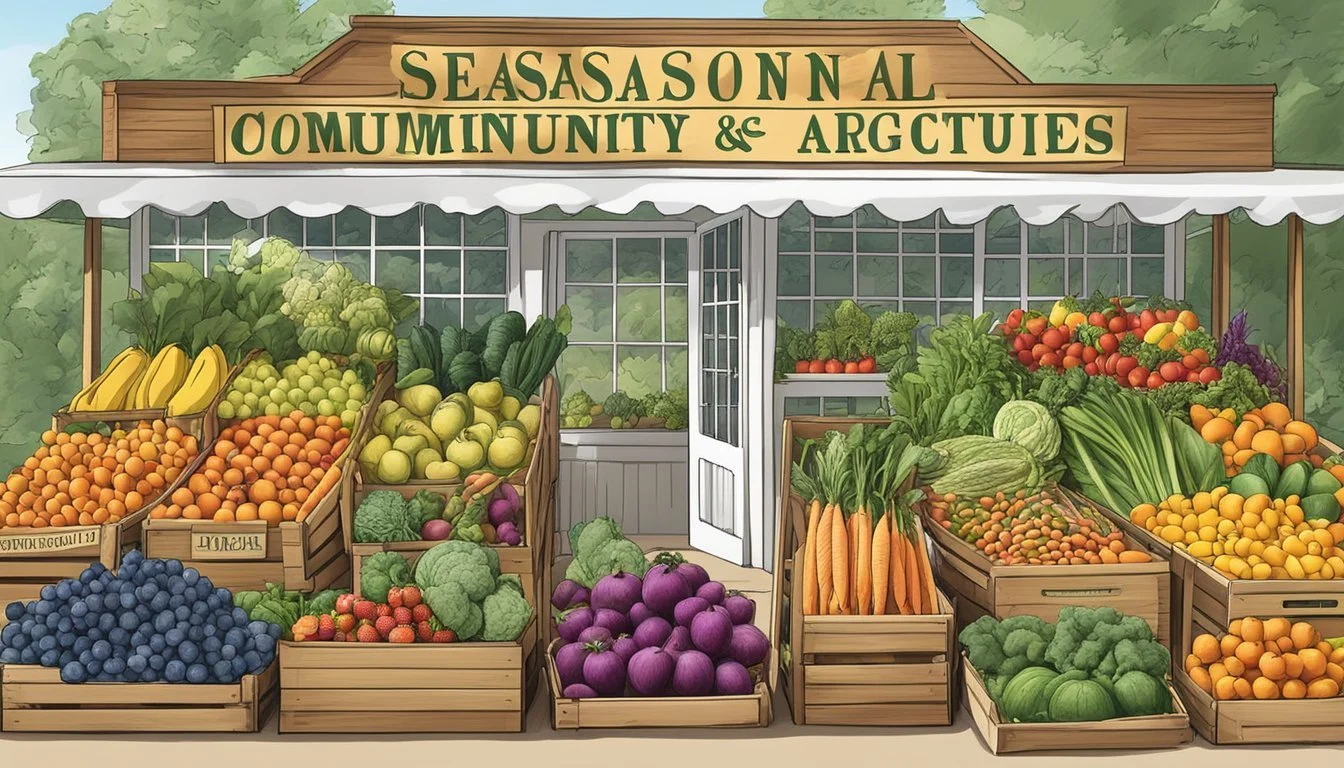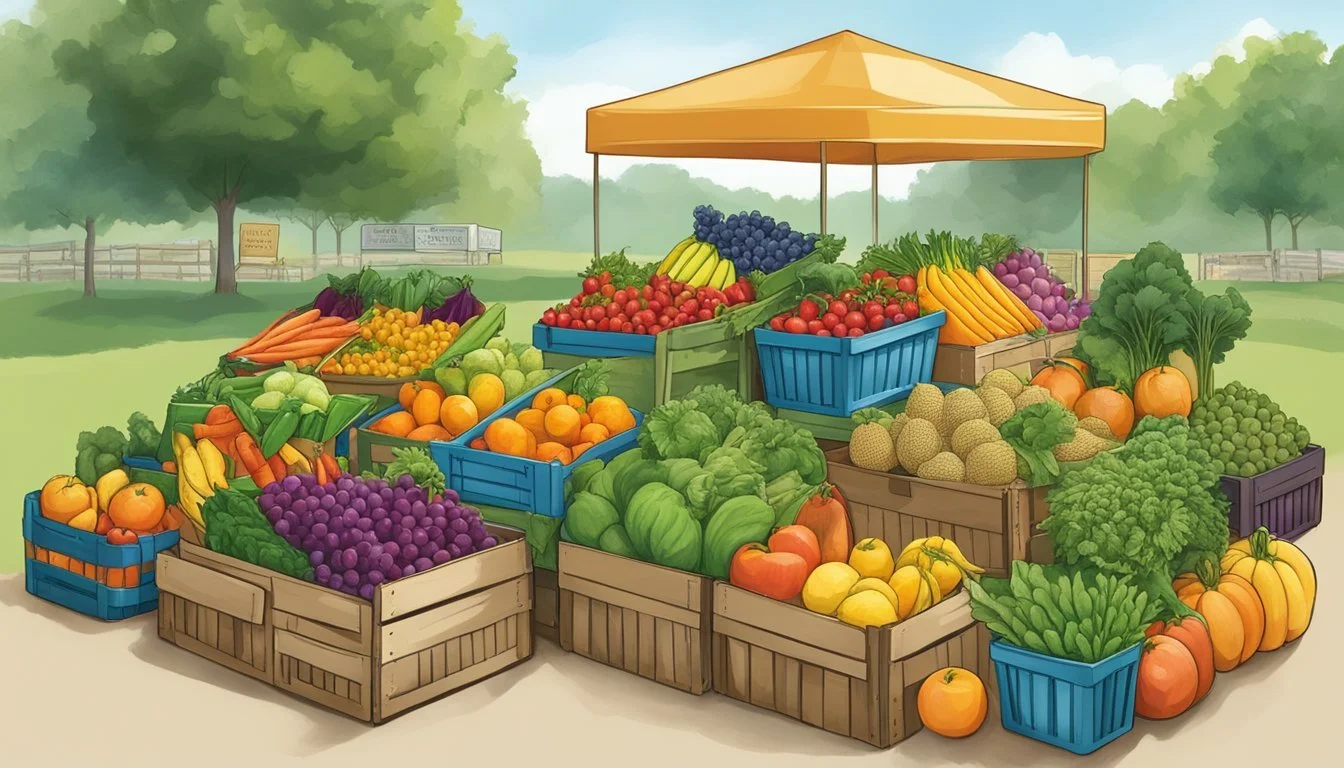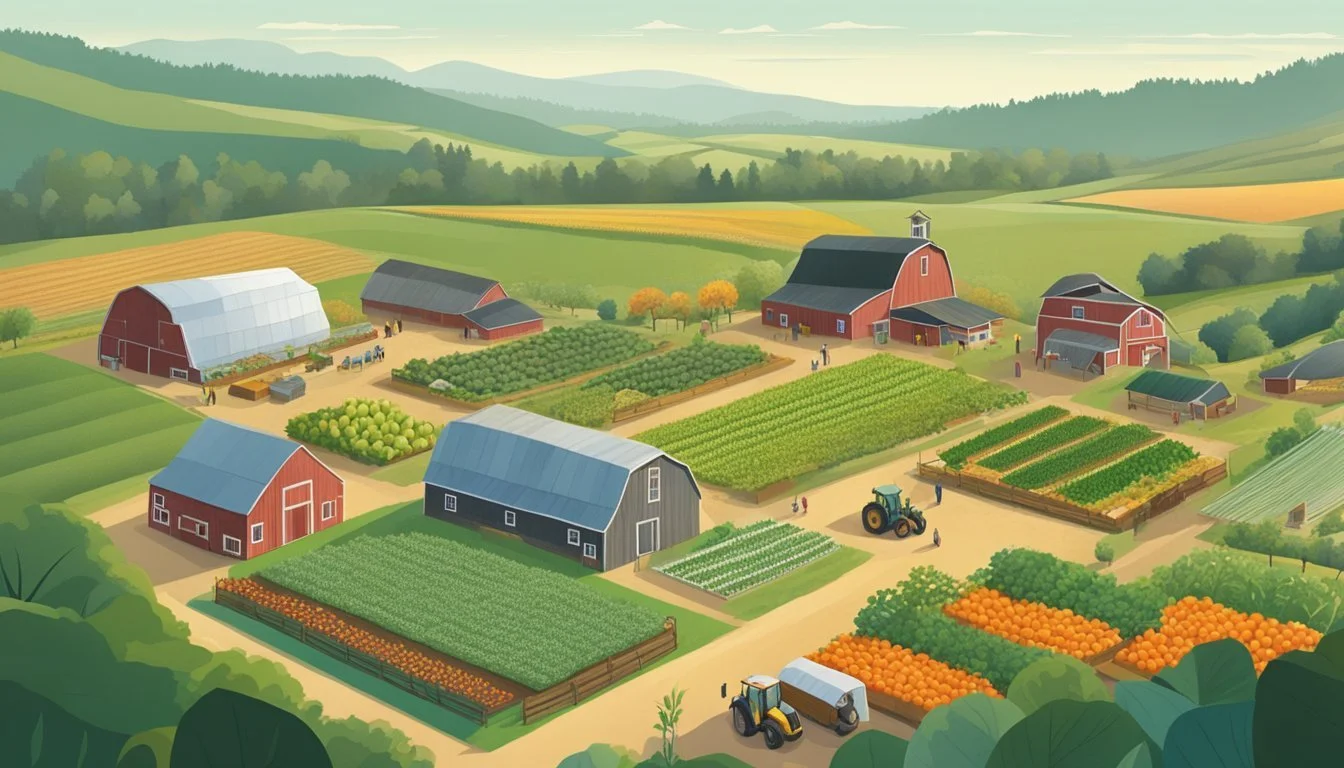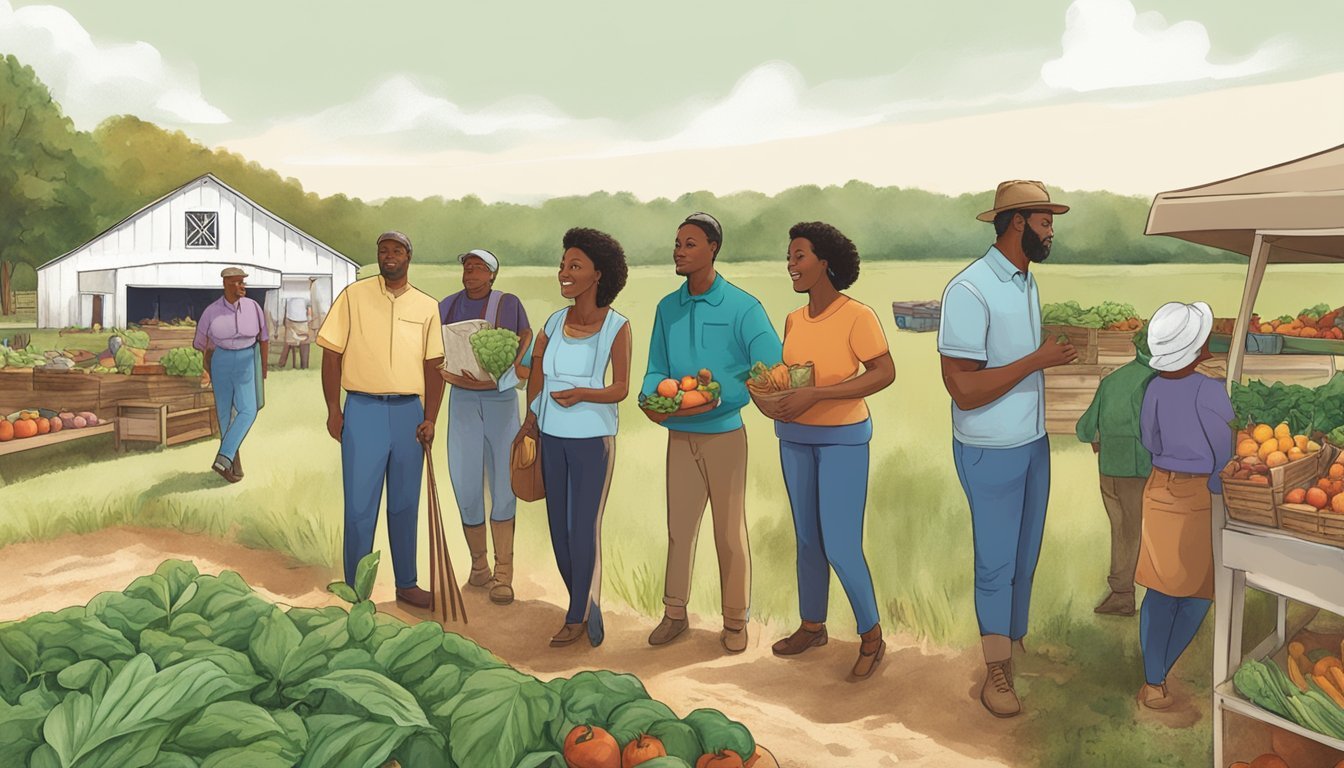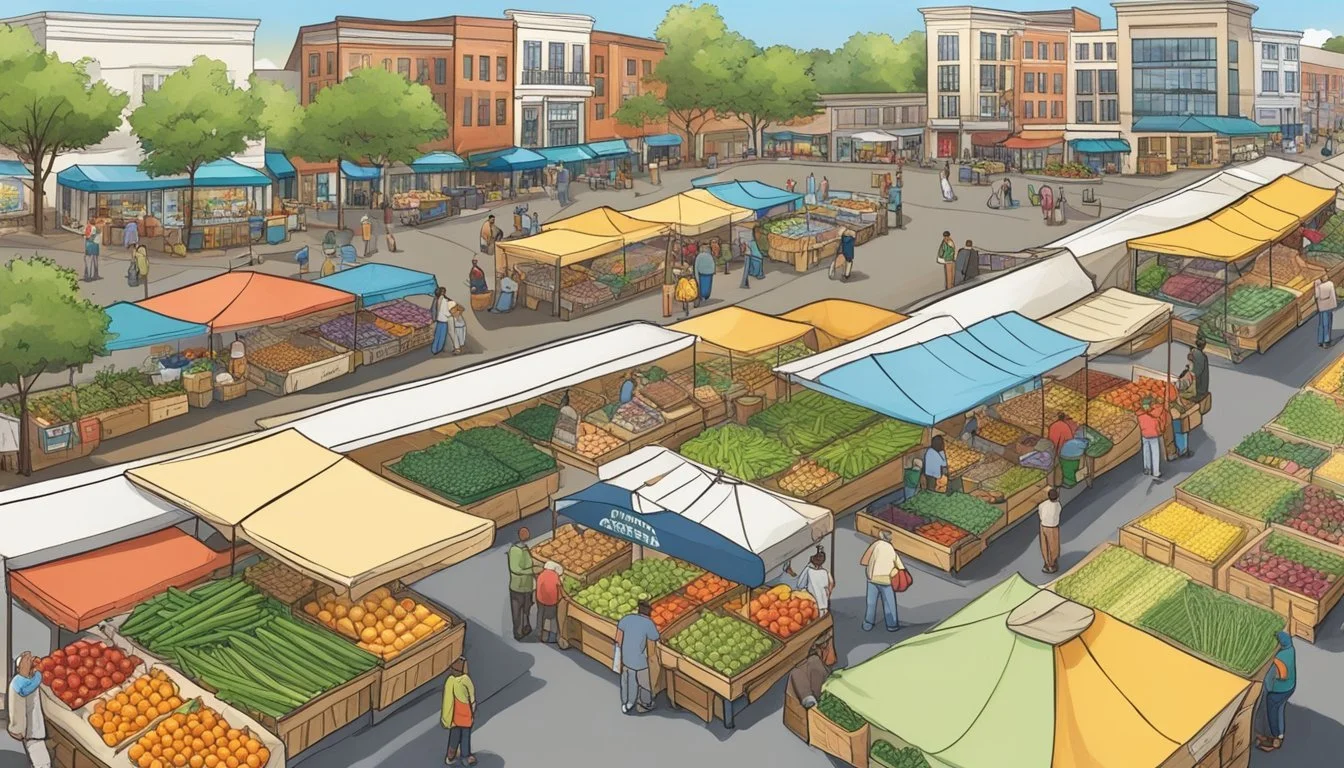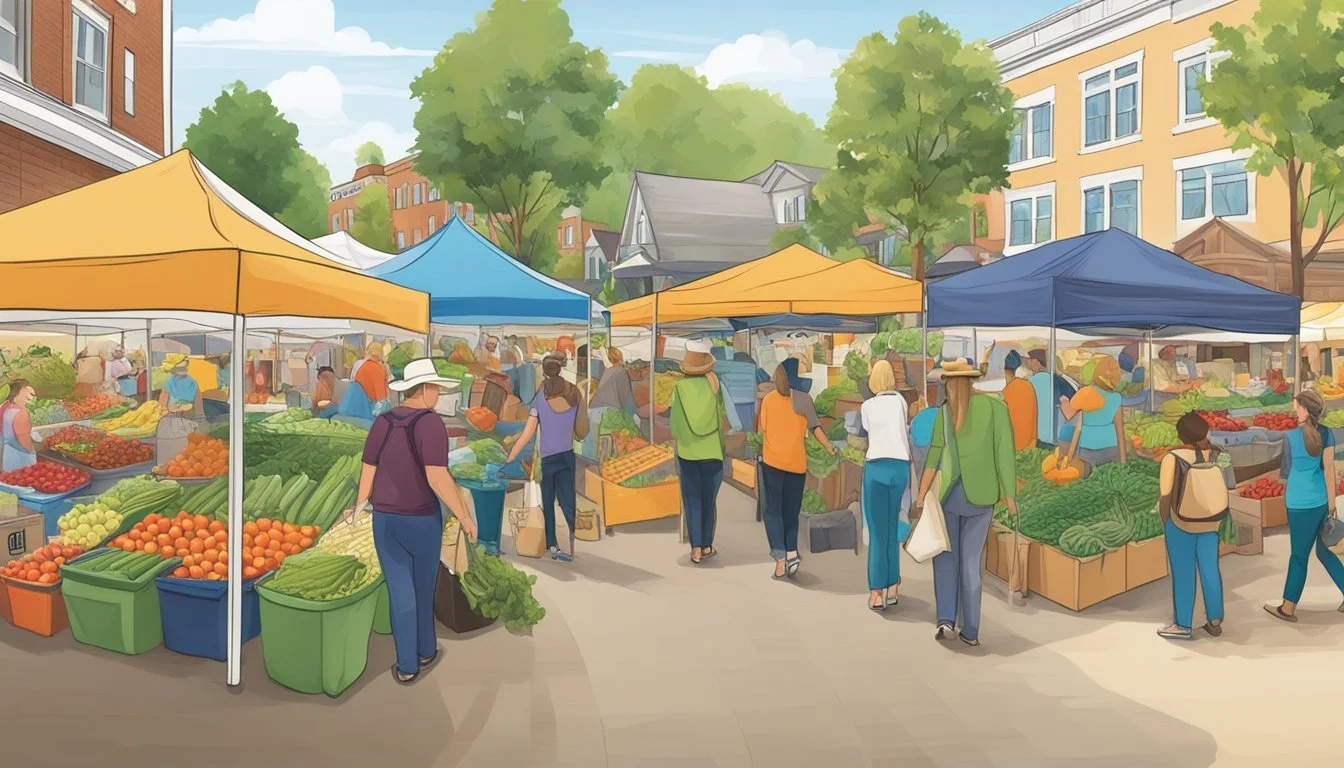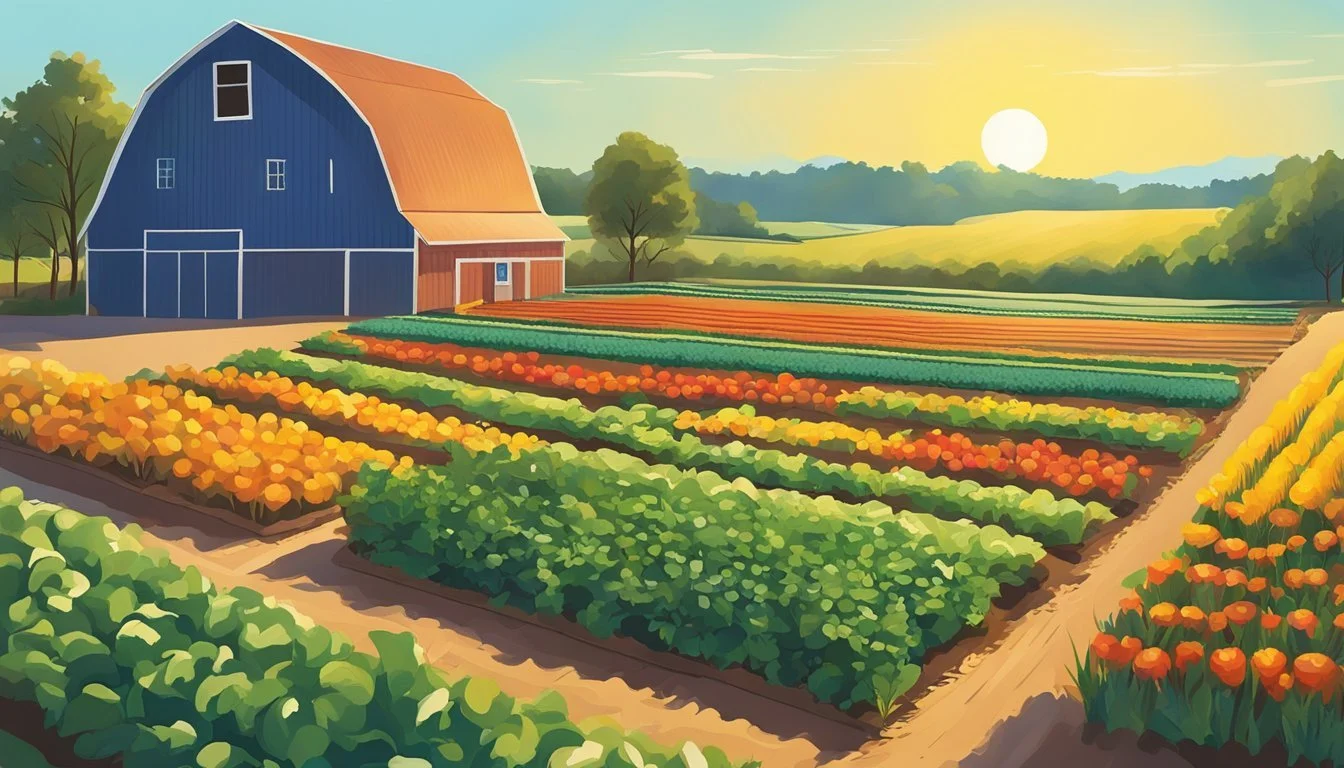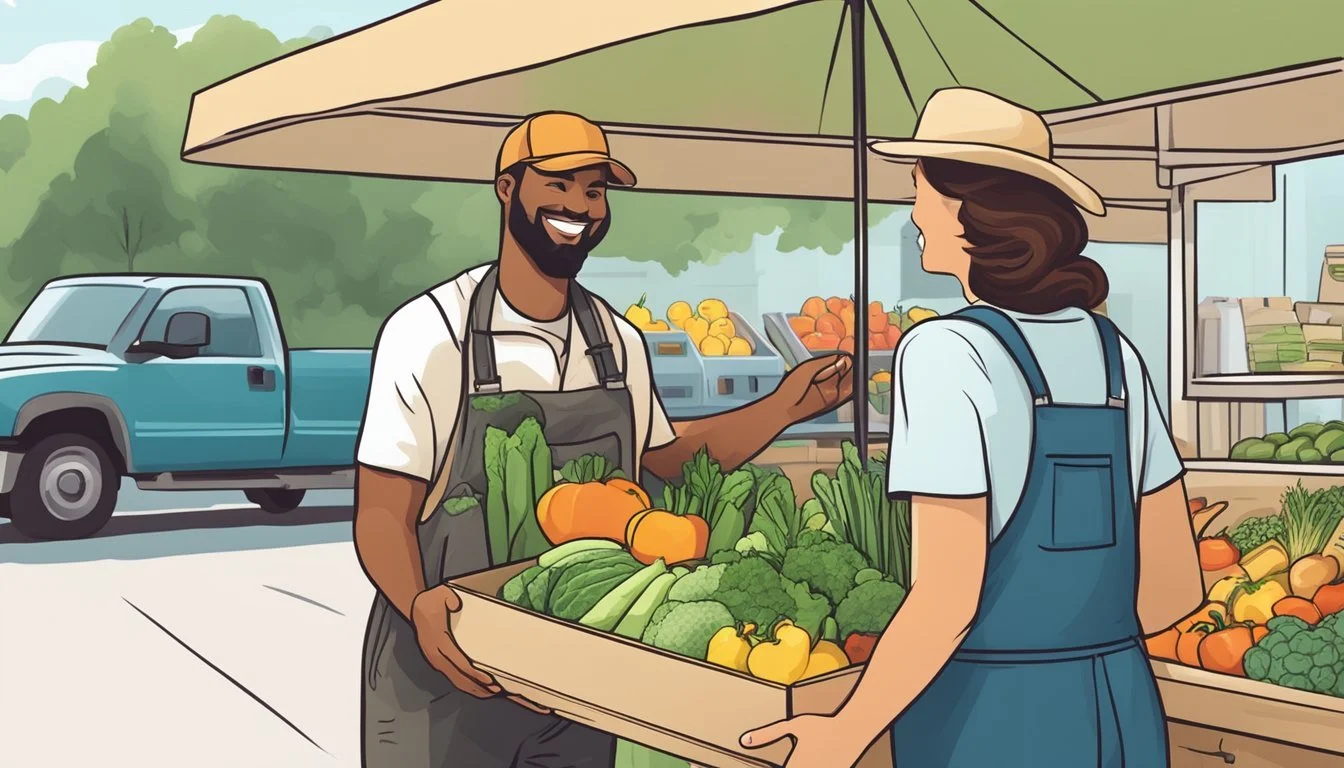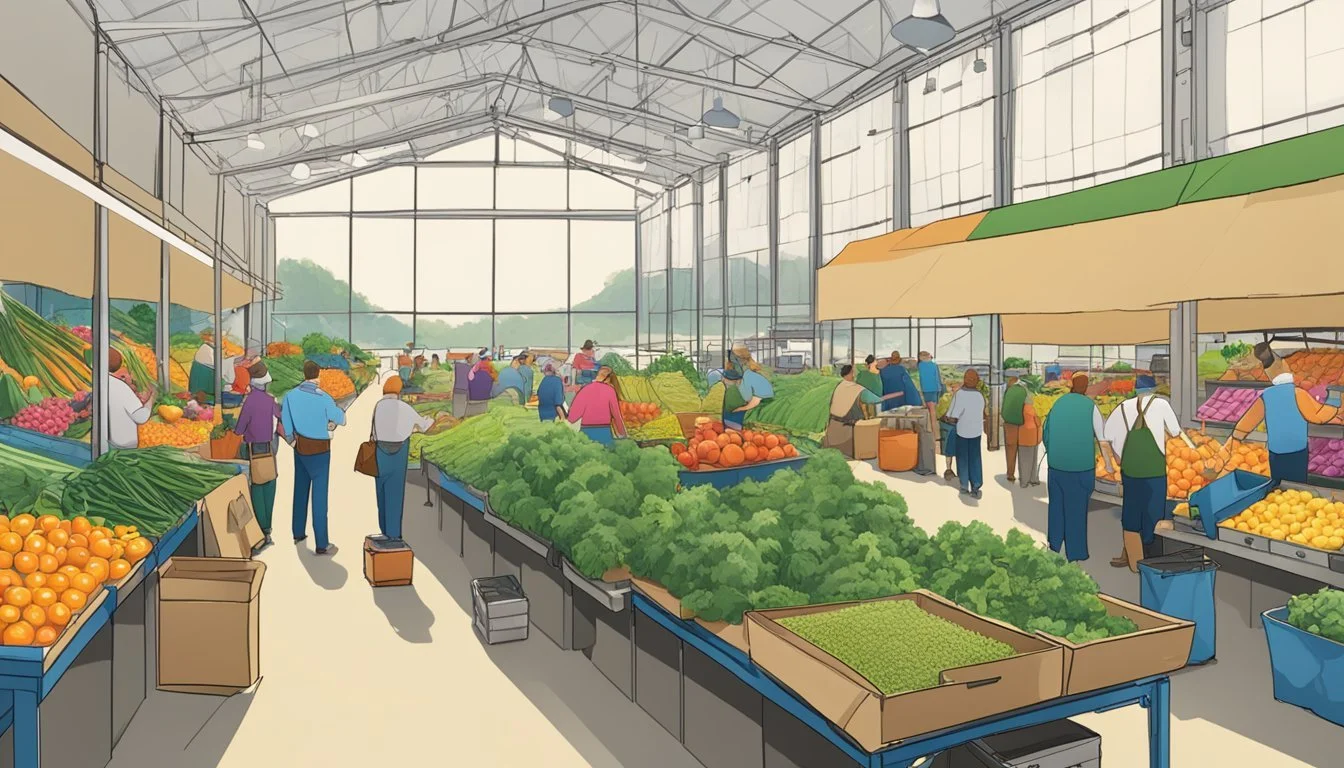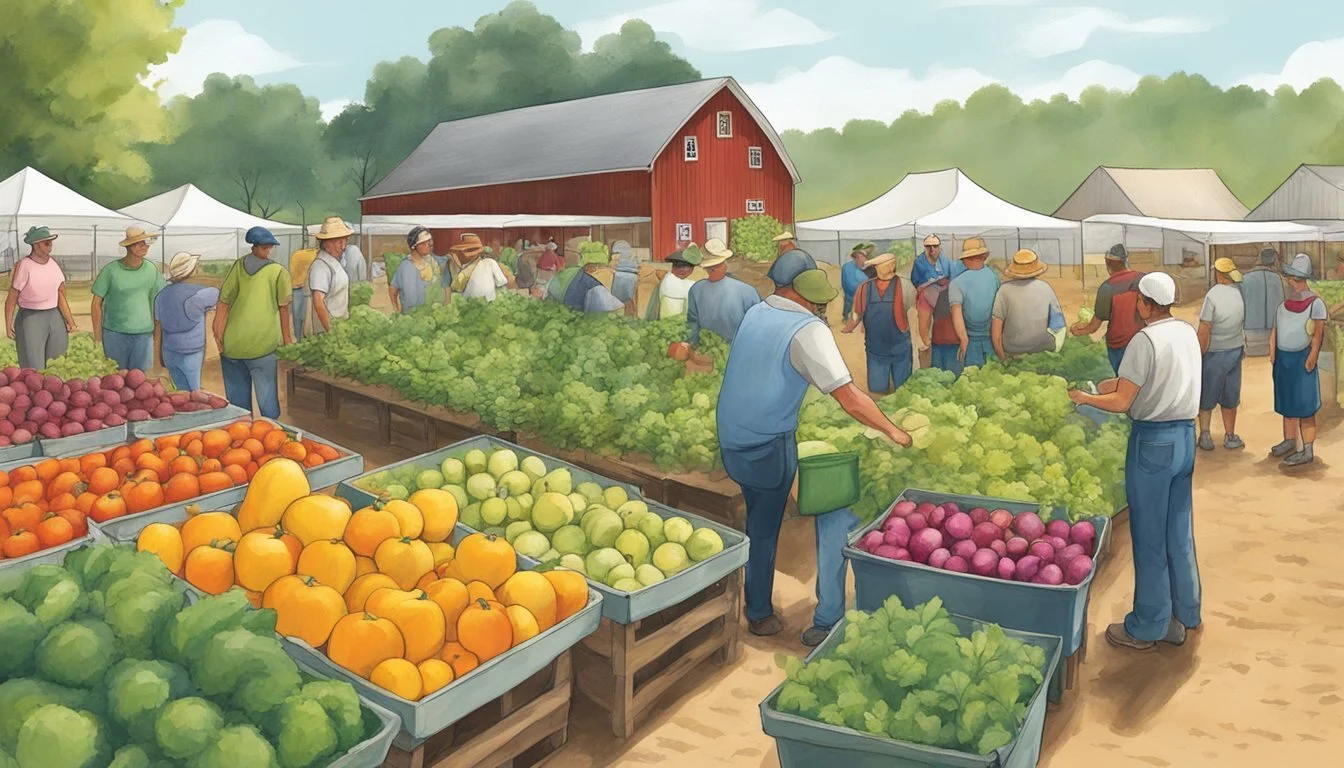Community Supported Agriculture (CSA) in Virginia Beach, VA
Your Guide to Local Produce
Community Supported Agriculture, commonly known as CSA, is flourishing in Virginia Beach, offering residents the opportunity to directly support local agriculture and receive a regular supply of fresh, seasonal produce. This model of farming and business allows consumers to buy "shares" from local farms, often receiving weekly or bi-weekly distributions of farm produce, which may include a variety of vegetables, fruits, and sometimes additional farm products like eggs and dairy. As a system built on mutual support, CSA in Virginia Beach not only provides a stable market for local farmers but also fosters a community that values food provenance and seasonal eating.
The principle behind CSA is to share both the benefits and risks of farming among the farmer and the consumers. This relationship empowers local farmers, giving them a predictable income stream, which is particularly beneficial at the start of the growing season when expenses are high and income is low. For consumers in Virginia Beach, CSA is an effective way to ensure they have access to the freshest food available while also supporting the local economy and sustainable farming practices. It allows people to reconnect with the land their food comes from and often forms the cornerstone of a local food movement that values environmental responsibility and community engagement.
Understanding CSA
Community Supported Agriculture (CSA) represents a partnership between consumers and farmers where members buy subscriptions, or "shares," providing them with a season's worth of farm products from local Virginia Beach farms.
History of CSA
The CSA model is a recent innovation in agriculture, originally developed in the 1960s in Germany, Switzerland, and Japan in response to concerns about food safety and the urbanization of agricultural land. Virginia Beach has seen a rise in CSA programs as consumers and farmers strive to foster a closer relationship and support sustainable practices.
CSA Business Model
A typical business model for CSA involves consumers purchasing a subscription from a local farm. In return, these subscribers receive regular deliveries or pick-ups of farm products which can vary from vegetables, herbs, berries, and eggs to meat, depending on what each farm offers. The model is inherently flexible, allowing farmers to adjust offerings based on customer demand and seasonal conditions.
Subscription Types:
Full Share: Ideal for families, includes enough products for 3-4 people.
Half Share: Suitable for individuals or small families, provides products for 1-2 people.
Benefits of Joining a CSA
Members who join a CSA enjoy multiple benefits:
Freshness: Access to fresh, locally-grown, often organic produce.
Sustainability: Reduced food miles and carbon footprint.
Support for Local Economy: Direct financial support to local farmers.
Community Building: Fosters a sense of community through direct relationships between farmers and consumers.
By participating in CSA programs in Virginia Beach, VA, members contribute to a healthier community and farm ecosystem, ensuring the longevity and success of local agriculture.
Local CSA Farms in Virginia Beach
Virginia Beach hosts a vibrant community of farms that participate in Community Supported Agriculture (CSA) programs. These farms contribute to sustainable agriculture by offering locally grown, often organic, non-GMO produce directly to consumers.
Holly Hill Organic Farm
Holly Hill Organic Farm is dedicated to organic farming practices. They provide a range of products that support the health of both their customers and the environment.
Dayspring Farm
Dayspring Farm offers CSA subscribers a share of the harvest with an emphasis on sustainability. Address: HCR 74, Box 2885, Cologne, VA 23037. Contact: (804)785-9401.
Full Quiver Farm
Practicing responsible farming, Full Quiver Farm operates on a commitment to nourish the community with naturally grown food, focusing on animal welfare and soil health.
Mattawoman Creek Farms
Located on the Eastern Shore, Mattawoman Creek Farms specializes in organic vegetables and herbs. They are known for their eco-friendly farming techniques and high-quality produce.
Skipper Farms
At Skipper Farms, customers can expect a full line of naturally grown local fruits and vegetables. Their Summer 2023 CSA season runs from May 5, 2023, to September 1, 2023, with limited spaces advocating early enrollment.
Seasonal Offerings and Products
Community Supported Agriculture in Virginia Beach offers a way for residents to enjoy fresh, locally-sourced produce and goods throughout the various seasons. The CSA model ensures that consumers receive the highest quality farm products that are grown or produced in harmony with the environment.
Fruits and Berries
Virginia Beach's CSA programs feature a diverse array of fruits and berries during their respective seasons. Strawberries often herald the start of the fruit season, offering vibrant flavor, followed by a summer bounty including blueberries and blackberries. CSAs specializing in organic farming provide these fruits with the guarantee of no synthetic pesticides or fertilizers, enhancing their natural taste and health benefits.
Spring: Strawberries
Summer: Blueberries, Blackberries
Vegetables and Herbs
The CSA farms in Virginia Beach take pride in their varied selection of vegetables and herbs. Members can expect a rotating assortment influenced by seasonal changes, from crisp lettuce and fragrant basil in spring to hearty squashes and rosemary in autumn. These offerings are cultivated to provide a culinary experience that encapsulates the essence of each season.
Spring: Lettuce, Basil, Spinach
Summer: Tomatoes, Cucumbers, Peppers
Fall: Squashes, Carrots, Rosemary
Meat, Cheese, and Eggs
Local farms support a sustainable food system by providing CSAs with meat, cheese, and eggs. Chicken, often free-range, is a staple product, ensuring ethical farming practices. Eggs from pasture-raised hens offer a richer flavor profile. Artisanal cheese, crafted from the milk of locally raised livestock, showcases the nuanced flavors of the region.
Meat: Chicken (available year-round)
Eggs: Farm fresh eggs (available year-round)
Cheese: Variety of artisanal cheeses
The CSA model provides residents with an opportunity to taste the real Virginia Beach—a palette of flavors grown right in their backyard.
Membership and Subscription Details
In Virginia Beach, Community Supported Agriculture (CSA) programs offer individuals the opportunity to subscribe for regular deliveries of locally-grown produce. These memberships are essential for both supporting local farmers and enjoying the freshest seasonal harvest.
Membership Options
Members of a CSA in Virginia Beach can choose from a variety of subscription shares. Typically, a share consists of a weekly or bi-weekly box of vegetables and may include other farm products. Some CSAs provide flexibility in the form of customizable shares where members can select preferences or add on items such as eggs, dairy, or flowers depending on availability.
Payment Plans and Costs
The CSAs in the area usually require members to pay a flat rate for the entirety of the season. This payment secures a member's subscription and contributes upfront to the farm's operational costs. Costs can vary depending on the CSA's offerings and the length of the subscription period. Payment plans may be available, allowing members to make installments rather than a lump sum payment. Payment typically occurs before the harvest season commences, aligning members' commitments with the farm's planning and planting cycles.
Agriculture Practices and Sustainability
In Virginia Beach, VA, Community Supported Agriculture (CSA) embraces a commitment to enhancing local farm viability and eco-friendly practices. CSA members often prioritize organic, non-GMO, and sustainable agriculture methods that promote long-term environmental stewardship.
Organic and Non-GMO Practices
Organic farms in Virginia Beach adhere to strict protocols to avoid the use of synthetic pesticides and fertilizers, creating a haven for naturally grown produce. Non-GMO commitments ensure that the crops and seeds have not been genetically modified, aligning with consumers' preferences for natural food sources. CSAs uphold these standards not only to meet certification requirements but also to satisfy a growing demand for organic options in their communities.
Sustainable Farming Techniques
Sustainable ag in the region hinges on innovative farming techniques, which prioritize soil health, water conservation, and biodiversity. Virginia Beach CSA farms often implement crop rotation, cover cropping, and conservation tillage to maintain soil integrity. Rainwater harvesting and drip irrigation systems underscore their dedication to water conservation. These sustainable practices demonstrate the farmers' role as stewards of the land, ensuring that agricultural activities contribute positively to the local ecosystem.
Community Engagement and Education
Community Supported Agriculture (CSA) in Virginia Beach fosters strong community engagement and facilitates education about sustainable farming practices. The relationship between local farms and residents is deepened through various programs that encourage direct involvement and learning opportunities.
Farm Visits and Tours
Farm visits and tours are a cornerstone for building a connection between CSA members and the farms they support. These visits allow members to see where and how their food is grown, fostering a sense of trust and satisfaction. Farms in Virginia Beach offer scheduled tours that answer questions about agricultural practices and allow visitors to experience farm life firsthand.
Workshops and Events
Local CSAs host a variety of workshops and events aimed at educating the community about food sustainability and farming techniques. Topics can range from organic farming methods to food preservation. These events serve as a platform for farmers to share knowledge and for community members to gain hands-on experience.
Volunteering Opportunities
Volunteering opportunities at CSA farms enable individuals to contribute to the local food system actively. Volunteers may assist with tasks like planting, weeding, and harvesting. This involvement not only supports the farm's operation but also imparts valuable agricultural knowledge to the volunteers, strengthening the community-supported agriculture model.
CSA Impact on Local Economy
Community Supported Agriculture in Virginia Beach plays a significant role in bolstering the local economy by fostering local employment and enabling direct marketing and sales, which benefit both farmers and consumers.
Local Employment
The presence of CSAs in Virginia Beach has a positive effect on local employment. CSA farms require a workforce for diverse tasks ranging from planting and harvesting to distribution. This creates job opportunities within the community and often leads to the employment of local residents. These jobs can be seasonal or year-round, depending on the size and operational model of the CSA.
Direct Marketing and Sales
CSAs thrive on a business model that removes intermediaries, allowing farmers to sell their produce directly to consumers at places such as farmers markets. This form of direct marketing enhances the financial gain for producers by minimizing distribution costs and increasing the profit margins. Furthermore, it promotes local spending, as consumers purchase shares directly from these farms. By buying into CSAs, consumers are effectively investing in their local economy, which can lead to increased economic stability within the region.
Marketing and Promotion Strategies
Promoting Community Supported Agriculture (CSA) in Virginia Beach requires strategic use of local resources and online platforms to reach potential customers. Effective marketing efforts are crucial for CSA farms to establish a strong presence in the local community.
Utilization of Local Food Directories
Virginia Beach CSA providers leverage LocalHarvest and other local food directories to enhance visibility. These directories serve as comprehensive resources for consumers seeking fresh, local produce. Listing CSA offerings on such platforms ensures that the farms are readily accessible to a targeted audience interested in supporting local agriculture. For example, a market manager may regularly update the CSA’s profile and offerings on these directories to keep information current and appealing to potential members.
Online Marketing and Social Media
Social media is a powerful tool for CSAs to connect with their audience. Farmers utilize platforms like Facebook, Instagram, and Twitter to share updates, harvests, and engaging content that showcases their produce and farming practices. Online marketing extends to creating appealing websites with clear, concise information about subscription options, produce varieties, and pickup locations. They may also incorporate newsletters and email marketing to foster a sense of community among current and potential CSA members.
Participation in Farmers Markets
CSAs build their local presence by participating in farmers markets. This direct marketing approach allows farmers to interact personally with consumers, enabling them to educate the public about the benefits of CSA programs and encourage sign-ups. Market managers are crucial in organizing the presence of CSA farms at these markets, ensuring they have an attractive setup and information readily available for interested individuals. Additionally, farmers often offer on-site sign-ups to their CSA, using the market's foot traffic to boost membership.
Weather and Seasonal Variations
In Virginia Beach, weather patterns and seasonal cycles significantly impact CSA farming, dictating the availability of produce and the structure of harvest seasons.
Dealing with Weather Uncertainty
Farmers in Virginia Beach must navigate an array of weather conditions ranging from coastal storms to seasonal droughts. They prioritize crop diversity and resilient farming practices to mitigate unpredictable weather outcomes. For example, they may employ cover crops to protect the soil during heavy rains and employ drip irrigation systems during dry spells to maintain consistent growth.
Harvest Season Planning
The harvest season in Virginia Beach is shaped by its temperate climate, leading to specific windows for seasonal produce. CSA farmers plan their planting schedules meticulously to capitalize on these periods. For instance, summer brings an abundance of tomatoes, peppers, and corn, while fall sees a transition to squashes and root vegetables. These seasonal rotations not only ensure a steady flow of fresh produce to members but also maintain soil health and sustainability on the farm.
Customer Relationships and Feedback
Community Supported Agriculture (CSA) in Virginia Beach focuses on building strong customer relationships and actively seeks feedback to ensure satisfaction. The provision of high-quality local produce is aimed at meeting customer needs and fostering loyalty.
Customer Service
In Virginia Beach, CSA providers prioritize customer service to establish a firm relationship with their customers. They typically offer various pick-up points — such as Sacred Grounds café and the Daily Shake — to ensure convenience for CSA subscribers. Providers maintain open channels of communication for inquiries and support, often including personalized services such as home delivery options or customized share sizes based on the family's needs.
Feedback and Satisfaction Surveys
To gauge customer satisfaction, CSA programs in Virginia Beach regularly conduct feedback and satisfaction surveys. These surveys aim to:
Understand customer preferences and enhance the selection of produce offered.
Identify areas of improvement in the service delivery process.
CSA providers analyze the feedback received to adjust their operations and offerings accordingly, ensuring they meet or exceed customer expectations. They also use positive feedback and testimonials as a way to attract new customers and maintain a positive public image.
Technology and CSA Management
In Virginia Beach, Community Supported Agriculture (CSA) harnesses modern technology to streamline operations from the field to the consumer's table. Advanced data management systems and customer subscription platforms are essential for efficiency in CSA businesses.
Data Management and APIs
Farmers have embraced technology to manage vast amounts of data, ensuring that their CSA models operate effectively. Using Application Programming Interfaces (APIs), they seamlessly integrate different software applications to track crop cycles, inventory, and distribution. By employing APIs, CSA management can analyze consumer preferences and adjust production accordingly. Here are a few specific ways technology is leveraged:
Data Analysis: Aggregation of yield data, market trends, and customer feedback to optimize planting schedules.
Inventory Tracking: Real-time monitoring of produce availability helps prevent waste and ensures timely delivery.
Customer Subscription Platforms
Subscription management is at the heart of CSA models, and the use of technology here enhances customer experience and retention. Subscription platforms enable consumers to:
Sign Up and Customize Orders: Customers can select their preferences, manage delivery schedules, and make changes as needed.
Payment Processing: Secure and efficient handling of payments, often including automated renewal options.
By incorporating these tech-driven solutions, CSAs in Virginia Beach are becoming more resilient, sustainable, and aligned with consumer needs.
Legal Aspects and Regulations
In Virginia Beach, VA, Community Supported Agriculture (CSA) must navigate a complex landscape of legal aspects and regulations that impact their operation. These include zoning laws that govern land use and compliance requirements with health and safety regulations.
Zoning and Land Use
In Virginia Beach, CSA farms must adhere to specific zoning laws that dictate the land use for agricultural purposes. The zones that permit farming activities are carefully delineated to align with the city's development plans. CSAs must ensure their operations are in agriculturally zoned areas or obtain a variance for operation in other zones. Regular checks and applications may be required to maintain compliance with these land use regulations.
Health and Safety Compliance
Health and safety regulations serve as a cornerstone for the operation of CSAs. They are bound to meet:
State Agricultural Regulations: Virginia's Department of Agriculture and Consumer Services sets forth regulations that CSA farms must comply with to ensure the safety of their produce and livestock.
Food Safety: Following the Food Safety Modernization Act (FSMA), additional compliance is required for certain sizes and types of operations, focusing on preventing foodborne illnesses.
Sanitation and Handling: Standards for the handling, packaging, and distribution of produce are strictly monitored. CSAs must regularly review and align with these standards to avoid potential legal ramifications.
These regulations are essential for protecting consumers and enhancing the integrity of local food systems. CSAs should consult with legal advisors to navigate these specific legal frameworks and ensure ongoing compliance.
Challenges and Considerations
In Virginia Beach's CSA landscape, economic and sustainability challenges are at the forefront for farmers and consumers alike. Accurate market insights and strategic planning are critical to navigate these issues successfully.
Economic Challenges
Economic challenges for CSAs in Virginia Beach include balancing consumer expectations with operational costs. Financial risks are inherent as farmers must invest in planting and maintaining crops without a guaranteed return, especially when facing fluctuating market demands. They must consider:
Cost of Production: Includes seeds, labor, equipment, and land.
Pricing Models: Farmers need to set prices that cover costs yet remain attractive to consumers.
Market Competition: CSAs compete with traditional grocery stores and other direct-to-consumer models.
Farmers must also employ effective marketing strategies to retain a customer base that supports their CSA model against competing food purchase methods. Utilizing social media, local events, and word-of-mouth are typical approaches.
Sustainability Challenges
For sustainability, CSAs in Virginia Beach endeavor to reduce ecological impacts while maintaining crop yields. Challenges here include:
Soil Health: Implementing practices to avoid depletion and promote long-term fertility.
Water Use: Balancing adequate irrigation with conservation to safeguard local water resources.
Energy Consumption: Minimizing use of non-renewable energy in farming operations.
The sustainability of CSAs also hinges on building a resilient community that favors locally sourced produce, which in turn reduces greenhouse gas emissions associated with long-distance food transport.
Future of CSA in Virginia Beach
Community Supported Agriculture (CSA) in Virginia Beach is poised to become more innovative and expand its reach in the coming years. Adaptation and growth are at the forefront of this movement's future.
Trends and Innovations
Virginia Beach's CSA farms are likely to adopt new marketing strategies and technology to remain competitive and cater to changing consumer preferences. High-tech greenhouses and mobile apps for easy subscription management are examples of innovations that local farms may invest in. Sustainability initiatives, such as renewable energy for production and electric delivery vehicles, could also become more prevalent.
Expansion and Growth Projections
Projected growth for CSAs in Virginia Beach indicates not only an increase in the number of CSA farms but also in the variety of products offered. As local food production continues to gain traction, CSAs may see an uptick in demand, leading to more partnerships with restaurants and local markets. Economic projections suggest that CSAs could play a pivotal role in supporting Virginia Beach's local economy through the creation of jobs and stimulation of related industries such as farm equipment and organic fertilizers.
Additional Resources
In this section, readers can find a compilation of networks, associations, and educational resources that support CSA initiatives in the Virginia Beach area. These resources provide valuable knowledge and connections for anyone interested in local agriculture.
Local CSA Networks and Associations
Resilient Virginia: This association offers a comprehensive understanding of CSA models, fostering adaptations and growth opportunities within Virginia's CSA context.
LocalHarvest: A directory that lists CSAs, including those near Virginia Beach, VA. LocalHarvest is a key resource for finding CSAs like Skipper Farms, which is known for naturally grown produce.
Educational Materials and Publications
Virginia Institute of Marine Science: Provides practical insights into CSA operations and subscriber options, with educational material available for those interested.
Community Supported Agriculture - LocalHarvest: Offers over 25 years of knowledge on CSA. Through this publication, subscribers get foundational education on what CSA entails, including the structure and benefits of farm shares.

